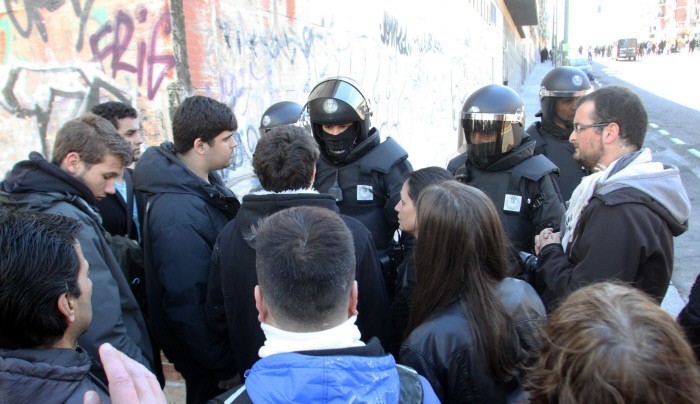
Spain's Platform of People Affected by Squatting (PAO), like many others, has expressed its worries concerning the country's new Housing Law. The association conveys "the firmest rejection of the content of the housing law", stating that "in no case does the PAO disagree with the need for any citizen to have access to decent housing, albeit from the legality and management of public administrations". The platform has also said that this law "ignores" and "sinks" those affected by squatting in Spain.
"Spain's new Housing Law ignores the exponential increase in squatting in recent years, as well as its consequences. The inaction and tolerance of these crimes have created a new vulnerable social group: those affected by squatting, who continue to demand solutions and legal protection, which is not reflected in this law either, but in our opinion favours those who commit the crime and generate the problem", stated the association.
The platform has listed the "problems" it has detected in the law:
- A housing law should not leave the housing solution for vulnerable families to third parties. We urge the government to ensure that the different administrations assume their responsibilities in terms of integrating people and groups into society, as well as assessing and solving their possible social difficulties, providing resources that improve the quality of life and prevent social exclusion.
- Access to decent housing must reject access to it illegally, and in no case should it be linked to obtaining social rent.
- The law shows the lack of protection for all homeowners and their right to property against third parties who temporarily take away that right. For this reason, we ask for precautionary measures to be taken in favour of the owners and those affected in cases of occupation or squatting.
- Trespassing, usurpation or non-payment of rents, have multiple casuistry and agents involved, although the law leaves no record of them or their implications, as well as the proposals to reverse the situation of the owners of the houses, who according to current legislation must face the non-payment of rents, the costs of supplies, taxes and legal expenses to recover "THEIR" property. In the face of these situations of obvious harm to the victim of the occupation, there is no article that regulates the exemption of the damage until the judicial solution is reached.
- The intentional assumption of the binomial occupation and vulnerability excludes measures to tackle other causes of occupation: the economic profit of squatters and mafias, the use of occupied housing as drug flats or brothels, the intention of not paying rent, the creation of ghettos by clans or groups...
- The lack of proposals to fight against squatting mafias is an unforgivable oversight that will create very serious damage and material, psychological and psychiatric harm to neighbours and communities affected by mafia and criminal squatting, the great forgotten ones of this problem.
- We demand that the criminal proceedings are followed for the crime of usurpation of section 2 of article 245 of the Penal Code, in case of substantiating with precautionary character the measure of eviction and restitution of the property object of the crime to its legitimate possessor and provided that among those who occupy the house are dependent people in accordance with the provisions of paragraph 2 of article 2 of Law 39/2006, of 14th December, of Promotion of Personal Autonomy and Care for people in a situation of dependence, victims of violence against women or minors, the competent regional and local administrations in matters of housing, social assistance, assessment and information of situations of social need and immediate attention to people in a situation or at risk of social exclusion will be notified, so that they can adopt the corresponding protection measures without these implying the detriment of the property rights of the applicant or the community, which will require a favourable social report on good cohabitation as well as co-responsibility in the care of the property, common areas and compliance with municipal regulations.
- That according to the Modification of the Law 1/2000, of the 7th of January, of Civil Procedure, the platform strongly opposes its modification:
- It is to be considered good faith, on the part of vulnerable persons/families, to demonstrate in advance of the judgement of a trial for occupation or unoccupancy documents verifying the request for help to the social services of the area, thus exempting the property from taking steps in these cases (except for very specific exceptions).
- The response of social services to a judge's request for vulnerability must entail compliance with deadlines, consideration of the effects that could have an impact on the opposing party, and above all, immediate housing resources or rental assistance.
- The law cannot further prolong the deadlines for the processing of the vulnerability of a person/family, as it involves circumventing several factors on the other side that have not been taken into account, with the lack of empathy of the legislator towards small landlords, the increase of mistrust in the collapsed system and the absence of alternative proposals for decent housing in social renting by the competent Administration being some of the main problems.